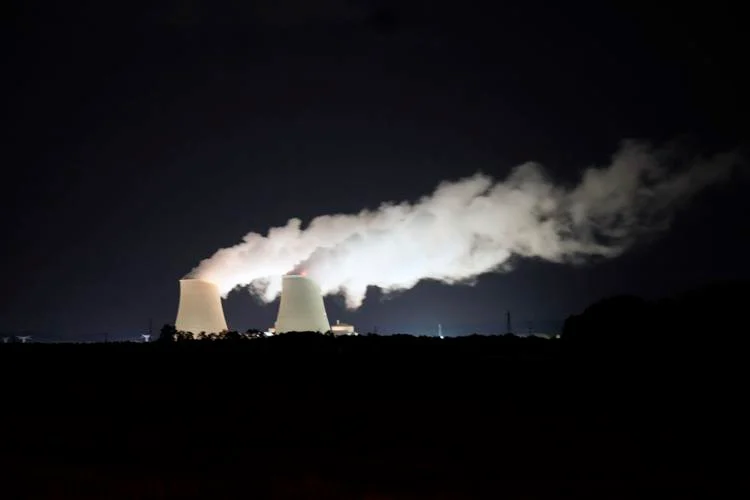Proponents of smooth strength and thinks tanks have lengthy stated it’s feasible to lessen emissions and hold an financial system developing. Now the present day document from the global’s pinnacle weather scientists says 18 nations have finished simply that, maintaining emissions reductions “for as a minimum a decade” as their economies keep to grow.
The United Nation’s Intergovernmental Panel on Climate Change (IPCC) did now no longer call the nations, mentioning inconsistency withinside the statistics.
But the use of figures from Global Carbon Project, which aren’t a part of the document, The Associated Press determined 19 international locations in which the pre-pandemic annual carbon dioxide emissions had been as a minimum 10 million metric heaps much less in 2019 than in 2010. They are the United States, the UK, Germany, Japan, Italy, Ukraine, France, Spain, Greece, Netherlands, Mexico, Finland, Singapore, Denmark, the Czech Republic, Belgium, Poland, Romania and Sweden.
The IPCC recognized 3 not unusualplace elements for nations which have been capable of decarbonize: They used much less strength, transitioned farfar from fossil fuels to renewable strength and expanded the strength performance in their products.
Such nations “can export a version that suggests we will lessen emissions and now have excessive stages of well-being,” stated Greg Nemet, a professor of strength and public coverage on the University of WisconsinMadison La Follette School of Public Affairs. ”We can export rules which have performed a position in reaching that.”
While the listing of nations factors a manner forward, it additionally increases questions of equity. The United States, Germany, Japan and the UK are amongst the biggest participants to anciental carbon emissions. Their citizens have already got power and to a big degree, vehicles.
Nemet, who’s additionally a lead creator of the IPCC document, introduced that advanced nations which have been anciental participants to weather alternate and had been capable of decarbonize want to take a “leadership” position in assisting growing nations do the same.
Historic emissions and discussions of obligation are constantly mentioned in the course of U.N. weather conferences. But getting industrialized nations to agree on whether or not reimbursement for damages is warranted or how a great deal they ought to pay to assist poorer nations spend money on inexperienced technologies, has all proved elusive.
The least advanced nations withinside the global are envisioned to have emitted simply 3.3% of worldwide greenhouse gases in 2019, Inger Andersen, govt director of the United Nations Environment Programme, mentioned in a assertion to the AP. Some professionals notice that growing nations frequently are compelled to borrow cash at better fees of hobby than advanced international locations, that can make big capital tasks prohibitive.
“The 18 nations which have balanced emissions discount and monetary increase are certainly examples that provide us wish for the destiny but… all advanced international locations have a anciental obligation to make certain that they lean in whether or not at the Paris Accord objectives of delivering $a hundred billion a 12 months in weather finance, on making sure poorer nations have get admission to to era and know-how to make those shifts,” or via way of means of leading, making those transitions first, she stated.
Michael Grubb, a lead creator at the IPCC document and professor of strength and weather alternate on the University College of London, stated withinside the document that scientists ran monetary and emissions eventualities to look what might appear globally at one-of-a-kind stages of carbon pollutants discount. In almost each situation — consisting of the “maximum aggressive” ones to reduce carbon emissions — the worldwide gross home product nonetheless almost doubled via way of means of mid-century. Even withinside the situation with the private emission cuts, GDP jumped 96%, Grubb stated.
“The factor is in practice, what we do in weather mitigation in macroeconomic phrases is actually going to be misplaced withinside the noise of the general effectiveness of our monetary rules,” he stated.
Grubb stated the IPCC document declined to call the 18 nations due to the fact the statistics for a few counted most effective carbon dioxide even as for others protected all greenhouse gases. Baseline years additionally differed. Depending at the parameters, there are greater international locations that decreased emissions even as developing their economies, he stated.
Patricia Romero-Lankao, a senior scientist on the National Renewable Energy Laboratory and lead creator of the part of the IPCC document on countrywide and subnational rules, stated she’s optimistic. But she harassed how a great deal greater have to be finished to useful resource deprived groups and areas in decarbonizing and repairing the affects of weather alternate.
“This isn’t a technical problem,” she stated. “We want to recognize what they want, what demanding situations they face and the way we will adapt our toolset to assist us reply to that.”


